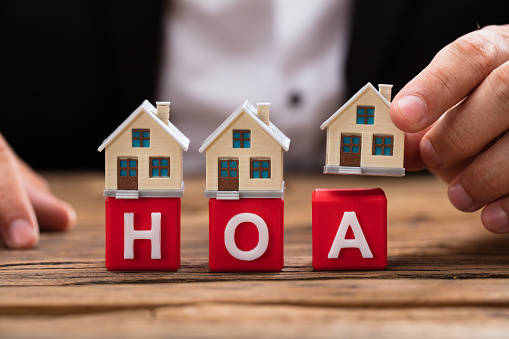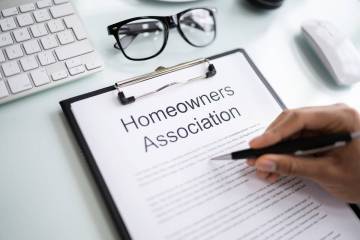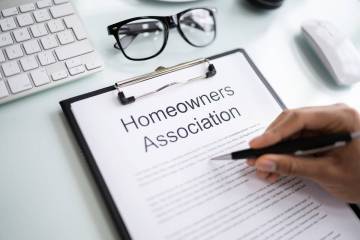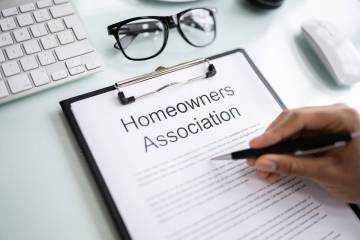Things to consider before HOA issues violations, fines
This column addresses homeowner association violations and fines and what the board should consider in this process.
■ Do your homework — be familiar with your governing documents, especially your rules and regulations, architectural guidelines and fine schedule.
■ A delinquent board of director cannot participate or vote in a hearing.
■ Your hearing may be invalid if fines were accessed or privileges suspended prior to the hearing date or if the homeowner was not provided a reasonable notice of the hearing or the fine was not included in the hearing notice.
■ Not less than 30 days to impose a fine.
■ Homeowners or residents that are called to a hearing have the right to attend all portions of the hearing related to the alleged violation including without limitation the presentation of evidence and testimony of witnesses.
■ They are entitled to due process, which include the right to counsel, the right to present witnesses and the right to present information relating to any conflict of interest of any member of the hearing panel or board of directors.
■ They are not entitled to attend the deliberations.
■ Homeowners can request in writing that their hearing be held in an open meeting. In this case, the homeowner or resident is giving up their right to confidentiality by making the request for an open hearing.
■ Decision by the board is to be mailed to the homeowner.
■ Associations are required to maintain a violation record, which includes a general description of the violation and the type of sanction that was imposed, such as a fine or a construction penalty. The general record must specify the amount. No names or addresses of the person who was sanctioned can be included in the records. Finally, the violation record must be organized in a convenient filing system or data system which would allow a homeowner to review the records.
FINES
■ Fines are not meant to be income but are meant to be tools of encouragement for homeowners to comply with their governing documents.
■ Remember a schedule of fines must be hand-delivered or mailed to the mailing address of each unit or to any other mailing address designated in writing by the unit owner.
■ Collection policy should also include any fees, fines or assessments or costs that can be assessed against a homeowner. (Annual mailing with the proposed operating budget).
■ A fine may not be imposed upon a unit owner or upon a tenant which has been committed by a person who is delivering goods or performing services for the unit owner or tenant.
■ A fine may not be imposed against a homeowner for a violation committed by an invitee or tenant unless the unit owner participated in or authorized the violation, had prior notice of the violation or had an opportunity to stop the violation and failed to stop it.
■ Fines must be commensurate with the severity of the violation. The amount of the fine must not exceed $ 100.00 for each violation or a total amount of $ 1,000.00 whichever is less.
■ Health, Safety or welfare violation must pose an imminent threat of causing substantial adverse effects on the community. The fine is to be determined by the board based upon the severity of the fine and in accordance with their governing documents.
■ The only fine that an association can begin foreclosure action for non-payment is health, safety or welfare fine.
■ You cannot apply interest on a past due fine but you can include any cost incurred by the association during a civil action to enforce the payment of the past due fine.
■ Payments for assessments cannot be applied to fines.
■ Continuing Violation is a fine that is imposed where the violation is not cured within 14 days or any longer period established by the board. The board may impose an additional fine for each 7 day period or portion during the period that the violation is not cured. In a continuing violation fine, the board does not have to provide an opportunity to cure the violation, does not have to provide an opportunity for any notice nor provide a hearing.
■ Associations must establish a compliance account which is separate from its assessment account.
OTHER SANCTIONS
■ The board may prohibit for a reasonable time the unit owner, his tenant or invitee from voting on any matters and or using the common amenities with the exception of any vehicular or pedestrian ingress or egress including any used for parking.
Barbara Holland is a certified property manager, broker and supervisory certified association manager. Questions may be sent to holland744o@gmail.com.
























